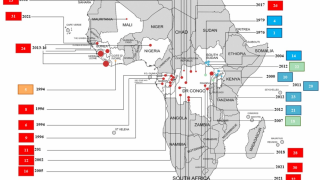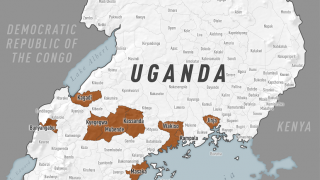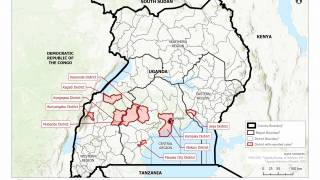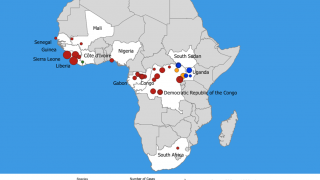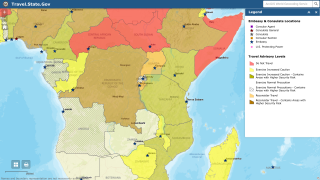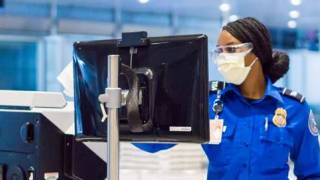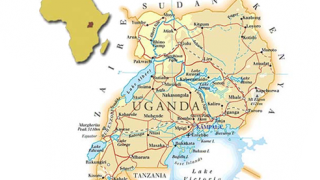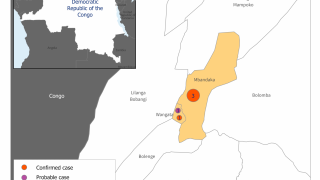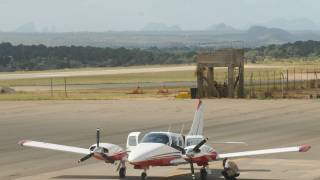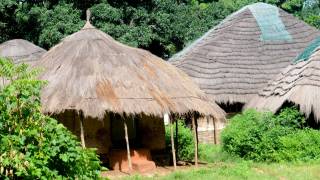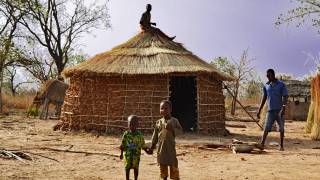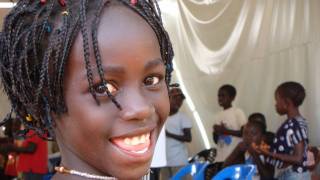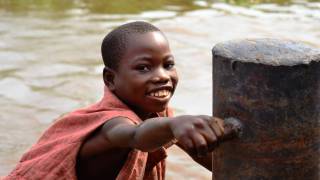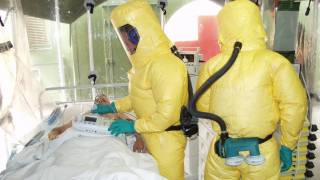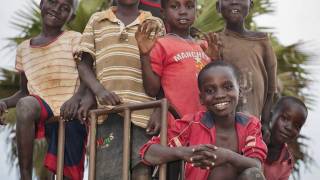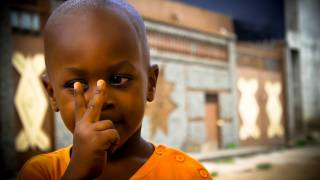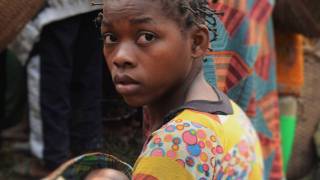Is Uganda Ready for Ebola?
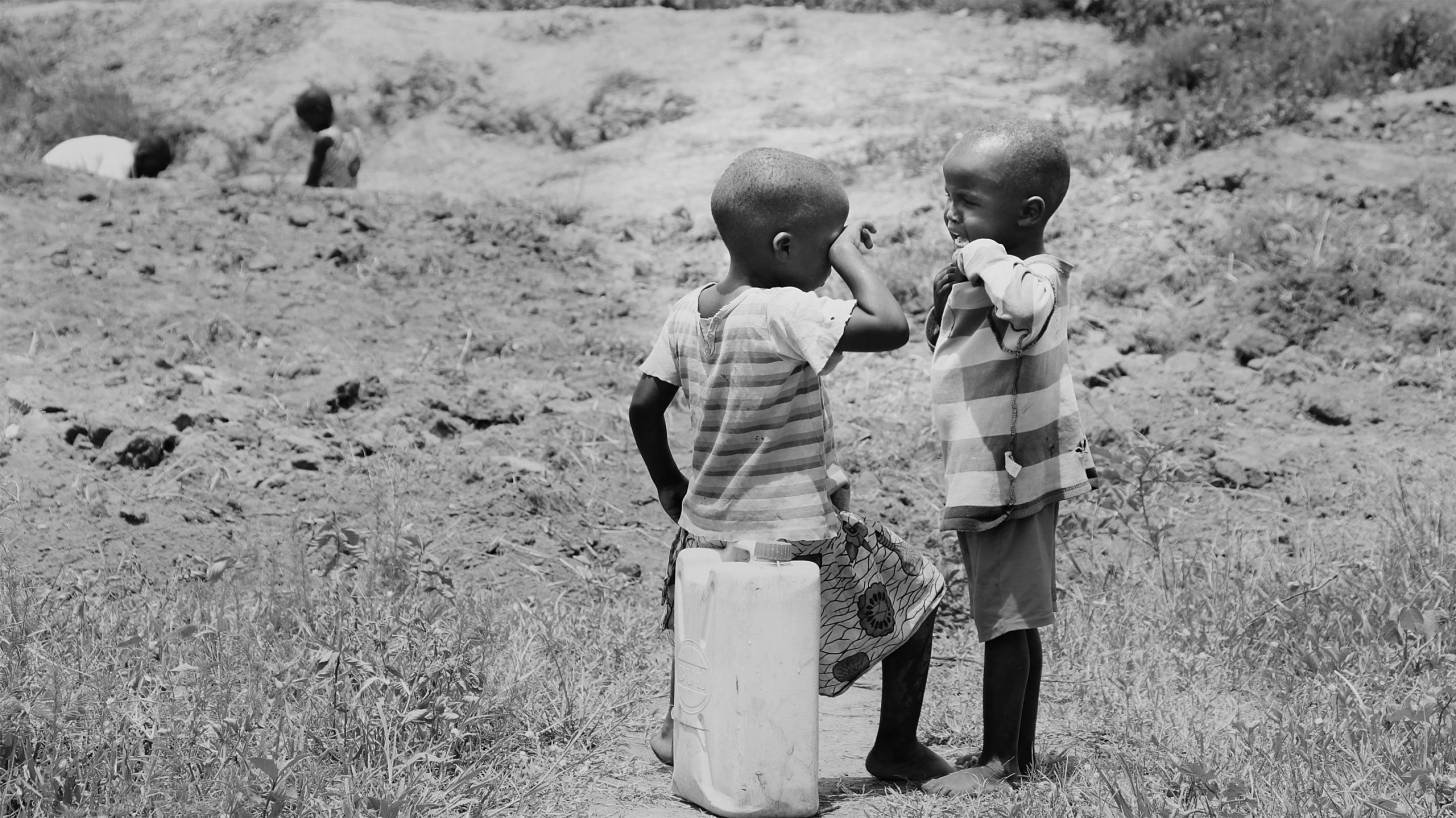
The latest news from Africa regarding the ongoing Ebola virus outbreak is not very positive.
As of January 3, 2019. the World Health Organization (WHO) confirmed 608 cases and 368 deaths since August 2018 in the Democratic Republic of Congo (DRC).
But, in one person’s opinion, there is good news regarding the experimental Ebola vaccine being deployed.
“One thing I am really certain of now is If it wasn’t for the (Merck) vaccine we’re using, the number of cases we have could have been really high, high, high,” said WHO Director-General Dr. Tedros Adhanom Ghebreyesus, reported STAT News.
Dr. Ghebreyesus’s assessment of Merck’s vaccine’s effectiveness is based on the fact that the case count hasn’t grown exponentially, not on modeling calculations.
This experimental vaccine V920 (rVSV∆G-ZEBOV-GP) has been given to approximately 54,000 healthcare workers in the DRC.
Additionally, Dr. Ghebreyesus suggested there may be needs for more vaccines in the future, as the risk of regional spread of Ebola is ‘very high’.
This WHO risk-assessment said it is ‘important for the countries of Uganda, Rwanda, and South Sudan, to enhance their Ebola surveillance and preparedness activities.’
The good news is Ugandan officials have been screening people for Ebola for months, and have been vaccinating its health staff with Merck’s Ebola Zaire virus vaccine.
The rVSVΔG-ZEBOV-GP candidate vaccine is a prime/boost candidate vaccine based on Ad26- and MVA-vectored components (Ad26.ZEBOV/MVA-BN-Filo) and the Ad5-EBOV candidate vaccine.
Moreover, the latest news indicates more vaccine will be needed in Uganda.
The AP reported on January 2, 2019, that ‘hundreds of DRC refugees have now crossed into Uganda.’
Irene Nakasiita, a spokeswoman for the Red Cross in Uganda, said to the AP that ‘some Congolese trying to cross the border were forced back after resisting the efforts of Ugandan health officials screening people for Ebola.’
But, based on the currently available information, the WHO is ‘advising against any restriction of travel to and from the DRC’,
As of December 20th, the WHO reported no country has implemented measures that interfere with international traffic to and from the DRC.
This is important news since there were approximately 62 million people visited African countries in 2017.
In the USA, the Food and Drug Administration (FDA) Commissioner Scott Gottlieb, M.D. said in a previous press release, infectious disease ‘knows no borders.’
“While our globalized world and modern transportation systems help promote economic prosperity, these features also provide an easier platform for the spread of infectious diseases,” said Dr. Gottied in an FDA statement.
Ebola Virus Disease (EVD) is a rare and deadly disease most commonly affecting people and nonhuman primates (monkeys, gorillas, and chimpanzees). It is caused by an infection with a group of viruses within the genus Ebolavirus, says the CDC.
Ebola virus was first discovered in 1976 near the Ebola River in the DRC.
Since then, the virus has been infecting people from time to time, leading to outbreaks in several African countries.
To increase awareness amongst citizens of the USA, on October 19th, the US Centers for Disease Control and Prevention (CDC) upgraded its Travel Alert rating to Level 2, Practice Enhanced Precautions, regarding the Ebola outbreak in Africa.
The best pre-trip travel advice often comes from a certified healthcare provider, who can discuss each person’s medications, medicine, and vaccination needs.
International travel counseling sessions can be scheduled at Vax-Before-Travel.
Our Trust Standards: Medical Advisory Committee


